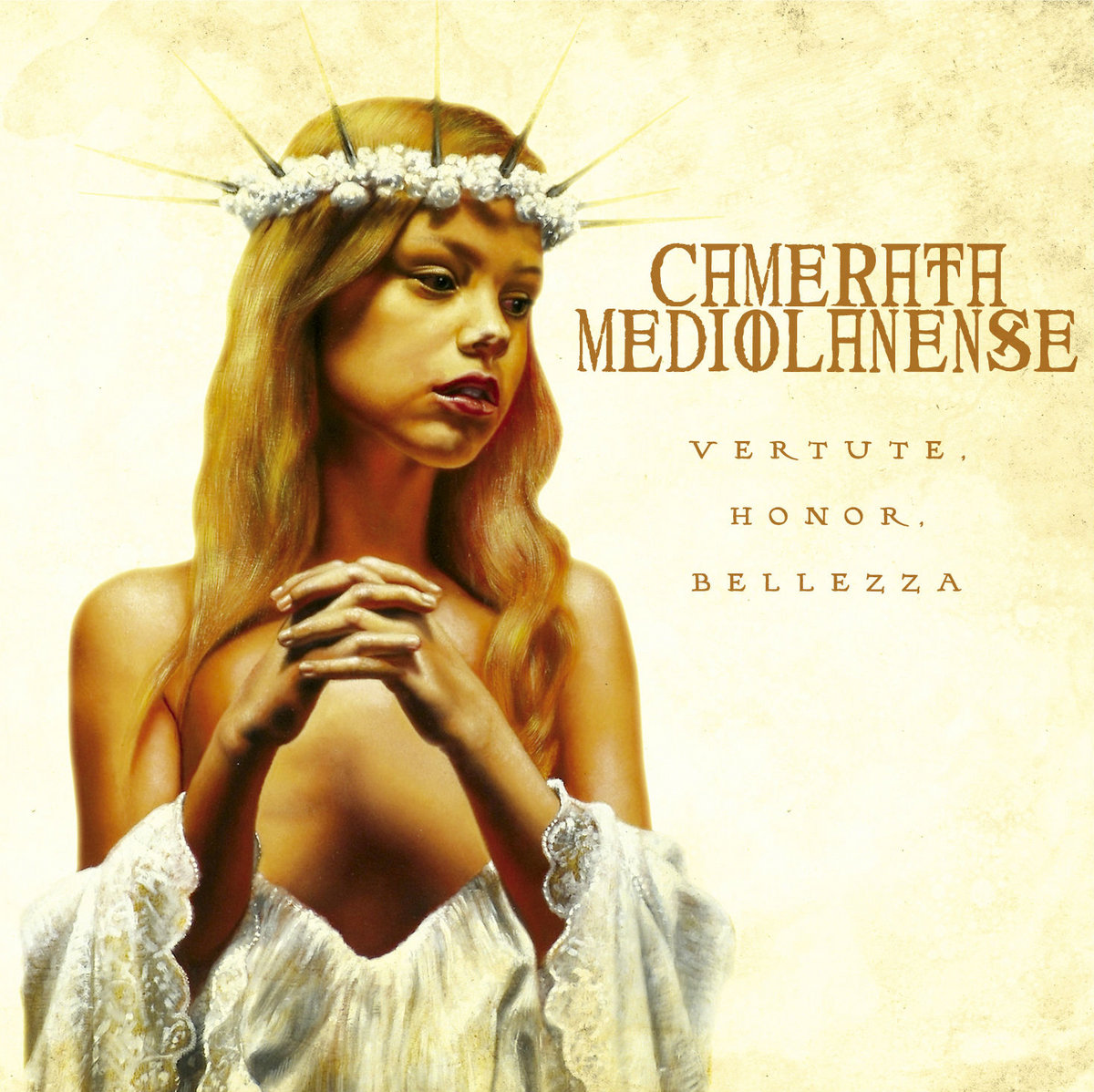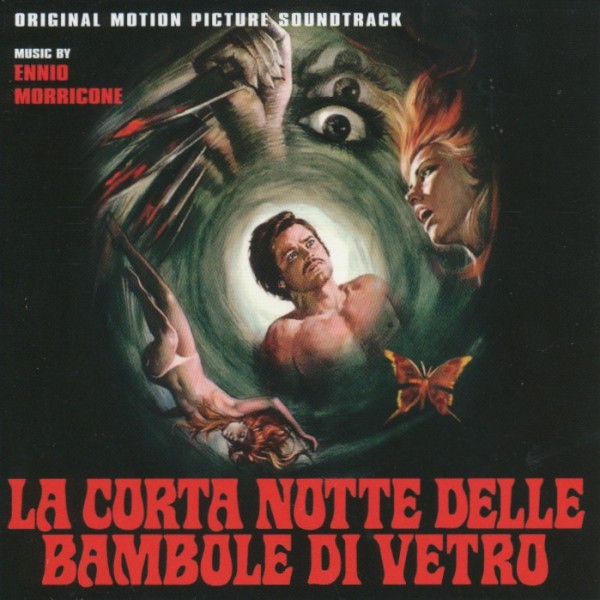 Tracklist:
Tracklist:
01. Voi Ch'ascoltate - 5:00
02. Dolci Ire - 4:07
03. Canzone Allitalia - 4:38
04. 99 Altri Perfecti - 4:05
05. Fragmentum XXXV - 1:39
06. Solo Et Pensoso - 5:34
07. Tremo Et Taccio - 5:26
08. Vago Augelletto - 5:23
09. Vergine Bella - 4:48
10. Lo Gran Desire - 3:20
11. O Mia Stella - 3:57
12. Quest'anima Gentil - 4:25
Musicians:
Backing Vocals, Chorus – Chiara Rolando, Daniela Bedeski
Bass – Edi Zuliani
Cello – Annamaria Cristian
Chorus – Daniela Ciannarella, Desiree Corapi, Elisa Santoro, Giancarlo Vighi, Paola Favalessa, Teresa Signorino, Vittorio Dante Ceragioli, Viviana Zordan
Harp – Giovanna Di Lecce
Lead Vocals – Daniela Bedeski (tracks: 1, 2, 5, 8, 9), Desiree Corapi (tracks: 8, 10), Elisa Santoro (tracks: 10), Matteo Benedini (tracks: 12), Vittorio Dante Ceragioli (tracks: 8)
Lyrics By [Based On Poems] – Francesco Petrarca
Performer – Elena Previdi, Manuel Aroldi, Marco Colombo, 3Vor
Ever since its foundation in 1994, Italian collective Camerata Mediolanense merges Wave and Post Punk with the musical spirit of the Renaissance and Baroque periods, not shying away from experimentation. Although they have been received mainly within the neoclassical and neofolk spheres, professional composer and musicologist Elena Previdi and her entourage cover a wide area, ranging from traditional songs across archaic rhythmic parts to electronic elements, all of which make it hard to categorize the three studio albums, multiple singles, and EPs Camerata Mediolanense has issued so far.
After five years in the making, Camerata Mediolanense's fourth album "Vertute, Honor, Bellezza" (English: "Virtue, Honour, Beauty") is finished now. With the new album the band continues to proceed on its path, mixing archaic, traditional and tribalistic music with experimental and electronic sounds.
The album is the centrepiece of Camerata Mediolanense's "Petrarca project," which is conceptually based on the poetry of 14th century scholar, poet, and humanist Francesco Petrarca, one of the fathers of Italian language and literature. The project was initiated by the CD single "99 Altri Perfecti" (2011) and is closed by the CD single "Vergine Bella," which are both included in the art-book edition of "Vertute, Honor, Bellezza."

 Tracklist:
Tracklist:

:format(jpeg):mode_rgb():quality(90)/discogs-images/R-4051563-1353618663-4812.jpeg.jpg)
:format(jpeg):mode_rgb():quality(90)/discogs-images/R-4051563-1353618860-7606.jpeg.jpg) Luciano Simoncini Italian pianist, composer, arranger and conductor. Mostly author of film scores and music library, in his career wrote almost 2000 songs used to jump so naturally from a musical genre to another, thus making everything seem easy, almost like a game. Gentleman, ironic, lazy, according to the piano made sure his exuberant friendliness and, as a man of southern Italy, full of blood and energy, his enormous wealth interior, bright of colors, rich of sounds.
Luciano Simoncini Italian pianist, composer, arranger and conductor. Mostly author of film scores and music library, in his career wrote almost 2000 songs used to jump so naturally from a musical genre to another, thus making everything seem easy, almost like a game. Gentleman, ironic, lazy, according to the piano made sure his exuberant friendliness and, as a man of southern Italy, full of blood and energy, his enormous wealth interior, bright of colors, rich of sounds.:format(jpeg):mode_rgb():quality(90)/discogs-images/R-1058684-1530605178-5310.jpeg.jpg)
:format(jpeg):mode_rgb():quality(90)/discogs-images/R-1058684-1530605188-2313.jpeg.jpg)
:format(jpeg):mode_rgb():quality(90)/discogs-images/R-3771445-1465235343-7154.jpeg.jpg)
:format(jpeg):mode_rgb():quality(90)/discogs-images/R-3771445-1465235346-1533.jpeg.jpg)
:format(jpeg):mode_rgb():quality(90)/discogs-images/R-2245432-1353873086-3563.jpeg.jpg)
:format(jpeg):mode_rgb():quality(90)/discogs-images/R-2245432-1448203192-3746.jpeg.jpg)
:format(jpeg):mode_rgb():quality(90)/discogs-images/R-2245432-1448203208-9444.jpeg.jpg)
:format(jpeg):mode_rgb():quality(90)/discogs-images/R-2245432-1448203212-2056.jpeg.jpg)






:format(jpeg):mode_rgb():quality(90)/discogs-images/R-1400655-1582814993-5774.jpeg.jpg)
:format(jpeg):mode_rgb():quality(90)/discogs-images/R-1400655-1582814993-2792.jpeg.jpg)

 Songs
Songs
:format(jpeg):mode_rgb():quality(90)/discogs-images/R-3564233-1491681952-5583.jpeg.jpg)
:format(jpeg):mode_rgb():quality(90)/discogs-images/R-3564233-1491681959-5528.jpeg.jpg)
:format(jpeg):mode_rgb():quality(90)/discogs-images/R-3564233-1491681966-5077.jpeg.jpg)
:format(jpeg):mode_rgb():quality(90)/discogs-images/R-3564233-1491681971-6158.jpeg.jpg)
:format(jpeg):mode_rgb():quality(90)/discogs-images/R-3564233-1336303696.jpeg.jpg)
:format(jpeg):mode_rgb():quality(90)/discogs-images/R-3876042-1458018738-7716.jpeg.jpg)
:format(jpeg):mode_rgb():quality(90)/discogs-images/R-3876042-1458018737-4687.jpeg.jpg)





 Morricone’s Career Has Often Walked Together with the History of the Italian Thriller and Horror Cinema. Some of the Greatest and Scariest Soundtracks, the Ones Most Full of Suspense and Anxiety, were Composed and Performed by this Absolute Genius of Modern Orchestral Music. The Soundtrack to 1971’s La Corta Notte Delle Bambole Di Vetrofits Perfectly in Morricone’s Repertoire of his Most Intense Works to Date.
Morricone’s Career Has Often Walked Together with the History of the Italian Thriller and Horror Cinema. Some of the Greatest and Scariest Soundtracks, the Ones Most Full of Suspense and Anxiety, were Composed and Performed by this Absolute Genius of Modern Orchestral Music. The Soundtrack to 1971’s La Corta Notte Delle Bambole Di Vetrofits Perfectly in Morricone’s Repertoire of his Most Intense Works to Date.